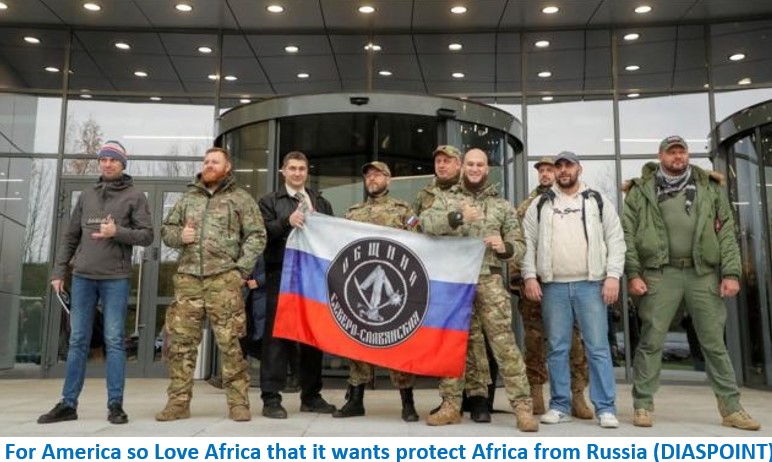Is Wagner Pivoting Back to Africa?
Post By Diaspoint | May 11, 2023

Ukraine Isn’t the Only Place Where America Must Counter Russia’s Mercenaries
Russia’s infamous Wagner paramilitary company may be headed for defeat in Ukraine. The group has sustained enormous losses in the last five months, and its leader, Yevgeny Prigozhin, is embroiled in a high-stakes feud with Russia’s top military brass, who have accused him of indirectly aiding Ukraine by “sowing rifts” among Russian forces. Late last week, Prigozhin publicly castigated Russia’s senior military leadership for not supplying Wagner with enough ammunition and threatened to withdraw his forces from the city of Bakhmut. According to the British Ministry of Defense, the Kremlin may be looking to replace the Wagner contingent in Ukraine with forces from another private military company—one that it can more tightly control.
But even if it is sidelined in Ukraine, Wagner is unlikely to fade into obscurity. The group has demonstrated global ambitions—and much closer to American shores than many realize. It has considered working in Haiti and sought to purchase weapons from Turkey, a NATO ally. But the region where Wagner has made the deepest inroads—and where it is likely to refocus its efforts in the event of a setback in Ukraine—is Africa.
The group is probably already playing a role behind the scenes in the crisis in Sudan, where it has forged links with paramilitary leader Mohamed Hamdan Dagalo (also known as Hemedti) and his Rapid Support Forces, one of the two main factions in the brewing civil war. Wagner has also entrenched itself in the Central African Republic and Mali, two former French colonies where it has largely filled the void left by departing French and international forces. And it has sent fighters to Libya and Mozambique, among other fragile states where governments and infrastructure need protecting.
Wagner’s growing presence in Africa poses a difficult challenge for the United States. Not only does the group bolster autocratic forces, stoke instability, and generally disregard human rights; it also acts as an agent of the Kremlin and helps reinforce its narrative. Yet thanks in part to an aggressive Kremlin-backed disinformation campaign, Russia and its mercenary proxies remain popular in Africa (and much of the global South) even as most Western populations have turned against Moscow.
The challenges for the United States and its allies include countering Wagner in the countries where it operates, denying Russia access to new clients in the form of military juntas, and puncturing the narrative of authoritarian stability that has elevated Russia’s standing in Africa. Washington has long struggled to respond effectively to Russian propaganda, but the Biden administration’s strategy of “pre-bunking” the Kremlin’s lies by declassifying intelligence has been a rare success. The United States should continue to seek new and innovative ways to proactively counter Russian disinformation, denying Moscow the opportunity to win hearts and minds with its fire hose of falsehoods.
Read More from original source
